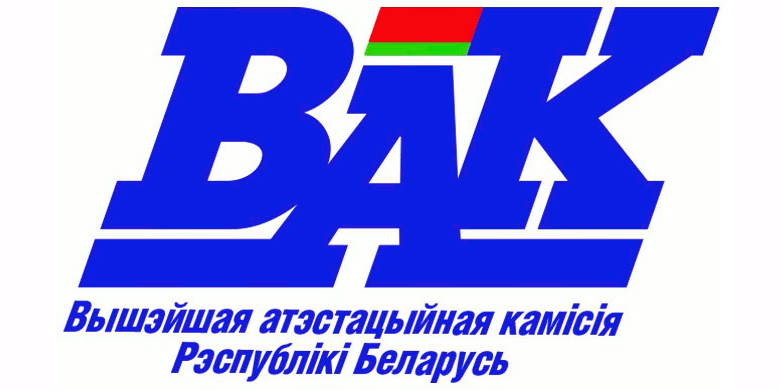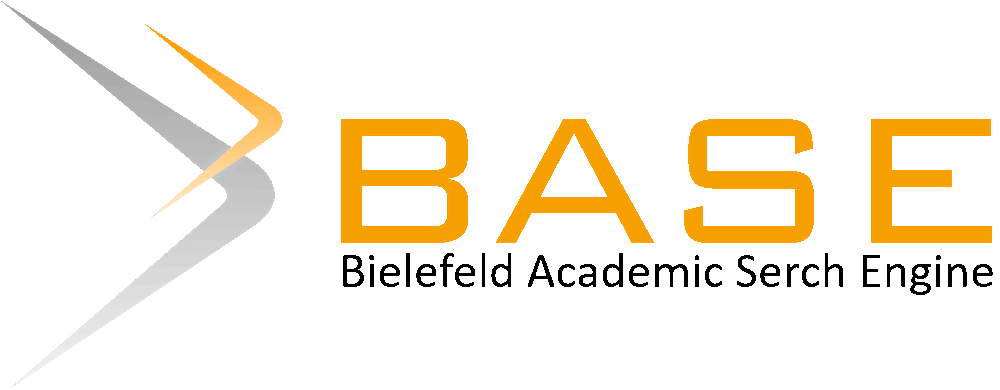Cognitive activity of students in the context of digitalization of education
Keywords:
cognitive activity, students, digitalization, educationAbstract
The article focuses on the controversial nature of the results of research on the digitalization of education in general and the organization of students ' cognitive activity in the new conditions in particular. It is noted that at the present stage, the motivational, target, operational and resultant components of cognitive activity are influenced by the total availability of information, the ease of its search, which leads to the devaluation of knowledge. Cognitive activity in the context of digitalization of education contributes to the formation of digital literacy, information and communication competence, emotional and social intelligence. Possible negative changes in the field of cognitive activity are associated with the risks of losing basic cognitive competencies, reducing the overall level of training, avoiding fundamentals, developing dyslexia and dysgraphy due to the priority of nonverbal communication. An essential feature of students' cognitive activity in the context of digitalization of education is the ability to quickly navigate large amounts of information, to assess the significance of content. At the same time, significant difficulties are recorded in the assimilation of large forms of educational material, as the focus on short and visual forms of information presentation, accompanied by visual clarity, becomes a priority. The results of the research can be applied to further comprehensive study of students ' cognitive activity in the context of digitalization of education, as well as to develop recommendations and design measures and systems to improve the quality of higher education.
References
Вожиевская, Т. И. Когнитивное и личностное развитие студентов педагогического вуза / Т. И. Вожиевская // Вестник Псковского государственного педагогического университета. Серия: Социально-гуманитарные и психолого-педагогические науки. – 2008. – № 5. – С. 100–105.
Голованова, А. А. Психологические эффекты цифровизации образования / А. А. Голованова // Страховские чтения. – 2019. – № 27. – С. 71–75.
Зимняя, И. А. Педагогическая психология / И. А. Зимняя. – М.: МПСИ, МОДЭК, 2013. – 448 c.
Конкин, А. А. Цифровизация образования: преодоление барьеров и рисков на пути к цифровому университету будущего / А. А. Конкин // Гуманитарные исследования. – 2020. – № 2(27). – С. 136–140.
Левина, Е. Ю. Цифровизация – условие или эпоха развития системы высшего образования? / Е. Ю. Левина // Казанский педагогический журнал. – 2019. – № 5(136). – С. 8–14.
Лизунова, И. В. Чтение с листа или c экрана? Преимущества, недостатки, цифровое неравенство / И. В. Лизунова, А. Ван дер Вил, Л. Гарсия-Фебо, Е.В. Пшеничная // Библиосфера. – 2020. – № 3. – С. 45–57.
Лызь, Н. А. Возможности и риски информационно-образовательной деятельности студентов в интернет-пространстве / Н. А. Лызь, О. Н. Истратова, А. Е. Лызь // Открытое образование. – 2020. – Т. 24, № 4. – С. 67–74.
Оганов, А. А. Образование: основные вызовы современности / А. А. Оганов, И. Г. Хангельдиева // Проблемы современного педагогического образования. – 2018. – № 58-3. – С. 194–199.
Ожиганова, Е. М. Теория поколений Н. Хоува и В. Штрауса. Возможности практического применения / Е. М. Ожиганова // Бизнес-образование в экономике знаний. – 2015. – № 1(1). – С. 94–97.
Осмоловская, И. М. Разработка учебников нового поколения в России / И. М. Осмоловская // Вестник Гродненского государственного университета имени Янки Купалы. Серия 3. Филология. Педагогика. Психология. – 2016. – Т. 6, № 1. – С. 71–77.
Панченко, О. Л. Риски в развитии цифровизации образования и их классификация / О. Л. Панченко // Наука, образование, инновации: гуманитарные, естественно-научные и технические решения современности: материалы XXIII Всероссийской науч-практ. Конф., 10 февраля 2020 года. / Южный университет; редкол. С.А. Анесянц [и др.]. – Ростов-на-Дону, 2020. – С. 144–146.
Психологический словарь / под общ. науч. ред. П.С. Гуревича. – М.: ОЛМА ПРЕСС Образование, 2007. – 800 с.
Стариченко, Б. Е. Цифровизация образования: реалии и проблемы / Б. Е. Стариченко // Педагогическое образование в России. – 2020. – № 4. – С. 16–26.
Хаджиев, С. М. Познавательная деятельность и специфика ее осуществления учащимися старших классов / С. М. Хаджиев // Научно-теоретический журнал. –2011. Вып. 3(8). – С.114–120.
References
Vozhievskaya T.I. Kognitivnoe i lichnostnoe razvitie studentov pedagogicheskogo vuza [Cognitive and personal development of pedagogical university students] Vestnik Pskovskogo gosudarstvennogo pedagogicheskogo universiteta. Seriya: Social'no-gumanitarnye i psihologo-pedagogicheskie nauki [Bulletin of the Pskov state university. series: social and humanitarian sciences]. 2008, no 5, pp. 100-105. (In Russian)
Golovanova A.A. Psihologicheskie effekty cifrovizacii obrazovaniya [Psychological effects of digitalization of education] Strahovskie chteniya [Strakhov readings]. 2019, no 27, pp. 71-75. (In Russian)
Zimnyaya I.A. Pedagogicheskaya psihologiya [Educational psychology]. M.: MPSI, MODEK, 2013, 448 p. (In Russian)
Konkin A.A. Cifrovizaciya obrazovaniya: preodolenie bar'erov i riskov na puti k cifrovomu universitetu budushchego [Digitalization of education: overcoming barriers and risks on the way to the digital university of the future]. Gumanitarnye issledovaniya [Humanitarian studies]. 2020, no 2(27), pp. 136-140. (In Russian)
Levina E.Yu. Cifrovizaciya – uslovie ili epoha razvitiya sistemy vysshego obrazovaniya? [Digitalization condition or epoch of development higher education systems?] Kazanskij pedagogicheskij zhurnal [Kazan pedagogical journal]. 2019, no 5 (136), pp. 8-14. (In Russian)
Lizunova I. V., Van der Vil A., Garsiya-Febo L., Pshenichnaya E.V. Chtenie s lista ili c ekrana? Preimushchestva, nedostatki, cifrovoe neravenstvo [Reading on paper and screens? Advantages, disadvantages and digital inequality]. Bibliosfera [Bibliosphere]. 2020, no 3, pp. 45-57. (In Russian)
Lyz' N.A., Istratova O.N., Lyz' A.E. Vozmozhnosti i riski informacionno-obrazovatel'noj deyatel'nosti studentov v internet-prostranstve [Opportunities and Risks of Students’ Information-Educational Online Activity] Otkrytoe obrazovanie [Open education]. 2020, vol. 24, no 4, pp.67-74. (In Russian)
Oganov A.A., Hangel'dieva I.G. Obrazovanie: osnovnye vyzovy sovremennosti [Education: the main challenges of our time] Problemy sovremennogo pedagogicheskogo obrazovaniya [Problems of modern teacher education]. 2018, no 58-3, pp. 194-199. (In Russian)
Ozhiganova, E.M. Teoriya pokolenij N. Houva i V. Shtrausa. Vozmozhnosti prakticheskogo primeneniya [Straus Howe Generational Theory. Opportunities of Practical Application] Biznes-obrazovanie v ekonomike znanij. [Business education in the knowledge economy] 2015, no 1(1), pp. 94-97. (In Russian)
Osmolovskaya I.M. Razrabotka uchebnikov novogo pokoleniya v Rossii [Development of textbooks of new generation in Russia] Vestnik Grodnenskogo gosudarstvennogo universiteta imeni YAnki Kupaly. Seriya 3. Filologiya. Pedagogika. Psihologiya [Vesnik of Yanka Kupala State University of Grodno. Series 3. Philology. Pedagogy. Psychology]. 2016, vol.6, no 1, pp. 71-77. (In Russian)
Panchenko O.L. Riski v razvitii cifrovizacii obrazovaniya i ih klassifikaciya [Risks in the development of digitalization of education and their classification] Nauka, obrazovanie, innovacii: gumanitarnye, estestvenno-nauchnye i tekhnicheskie resheniya sovremennosti [Science, education, innovation: humanitarian, natural science and technical solutions of our time]. Rostov-na-Donu, 2020. pp. 144-146. (In Russian)
Psihologicheskij slovar' [Tekst]. Red. P.S. Gurevicha. M.: OLMA PRESS Obrazovanie, 2007. 800 p. (In Russian)
Starichenko B. E. Cifrovizaciya obrazovaniya: realii i problemy [Digitalization of education: realities and problems] Pedagogicheskoe obrazovanie v Rossii [Teacher education in Russia]. 2020, no 4, pp. 16-26. (In Russian)
Hadzhiev S.M. Poznavatel'naya deyatel'nost' i specifika ee osushchestvleniya uchashchimisya starshih klassov [Cognitive activity and the specifics of its implementation by high school students] Nauchno-teoreticheskij zhurnal [Scientific and theoretical journal]. 2011. iss. 3(8). pp. 114-120. (In Russian)













